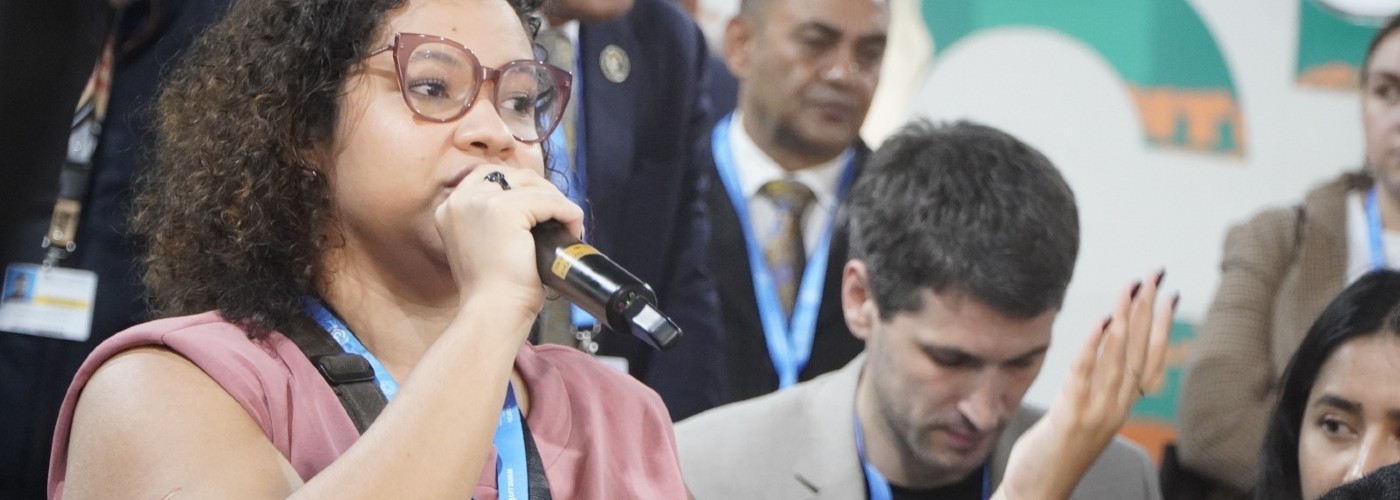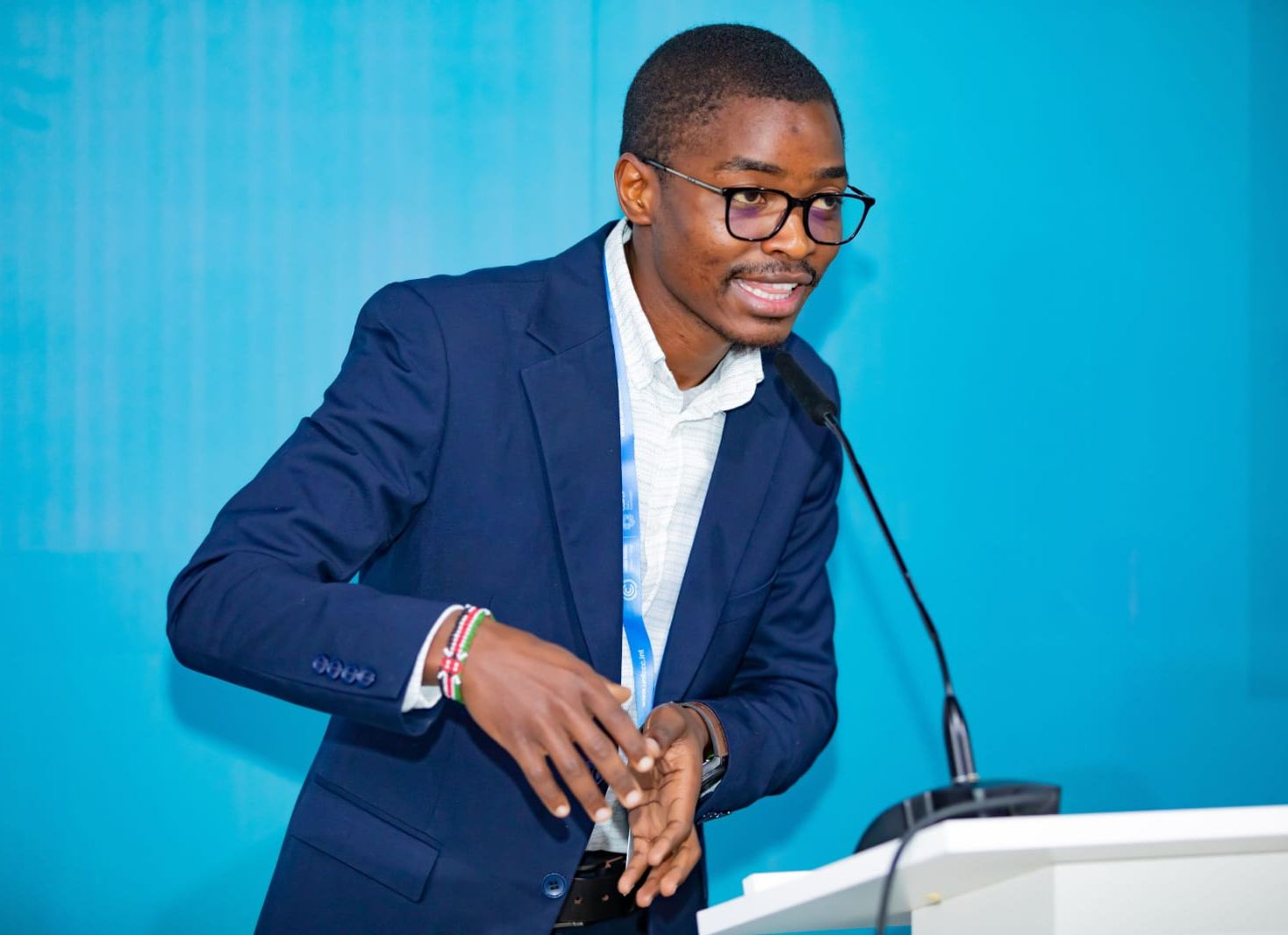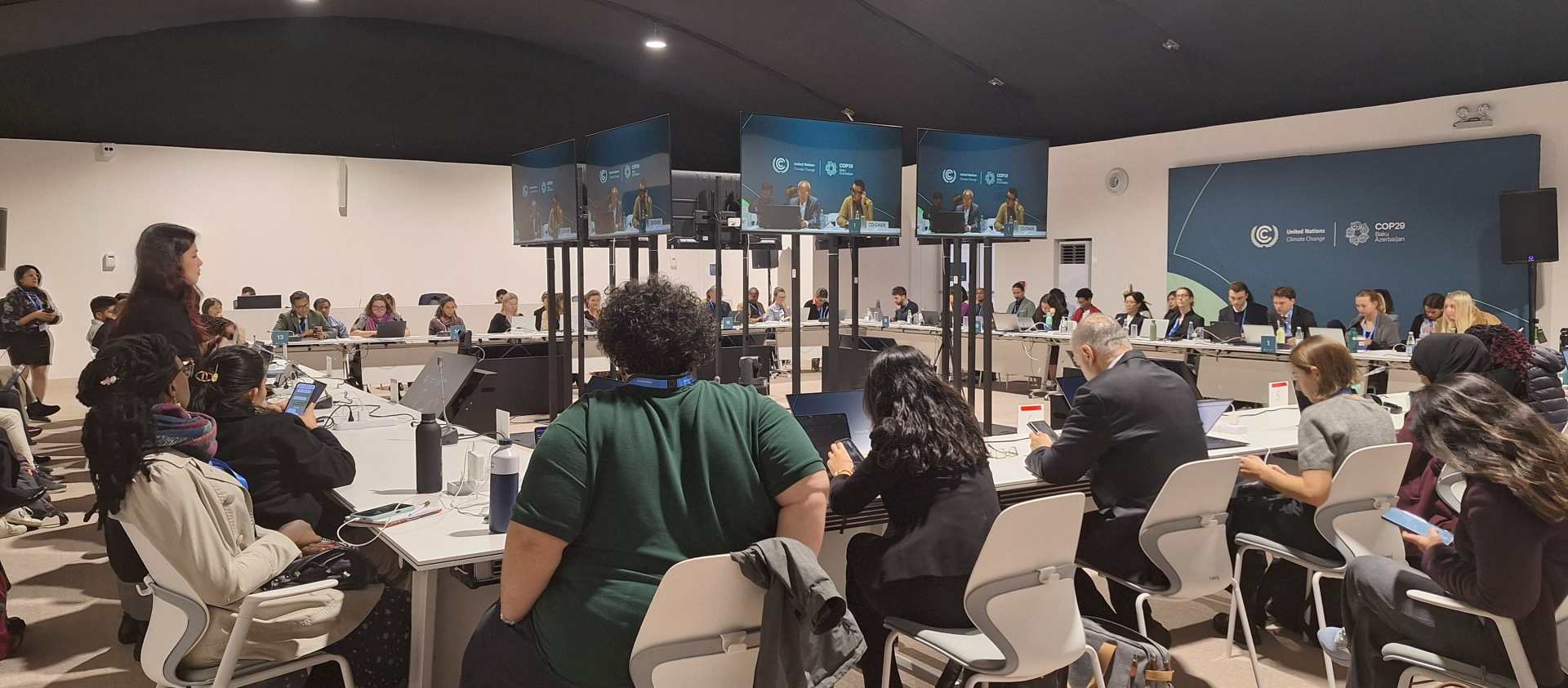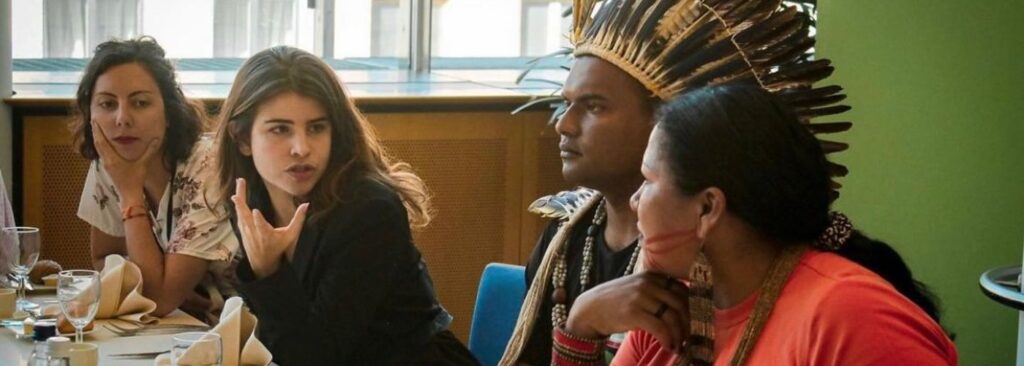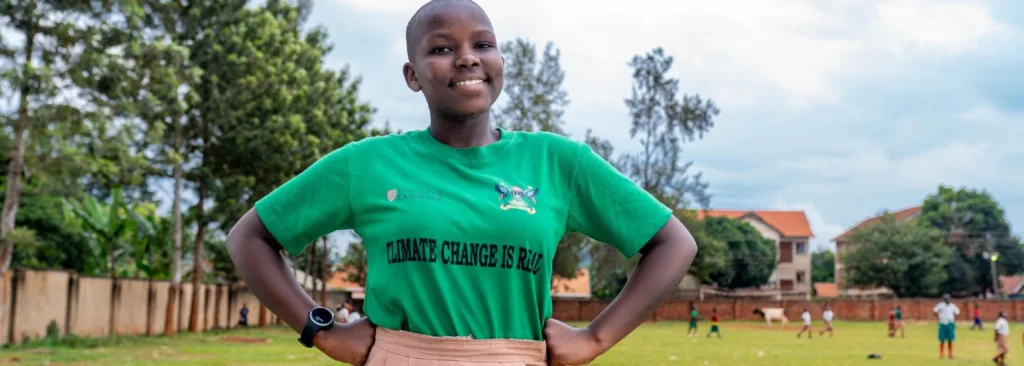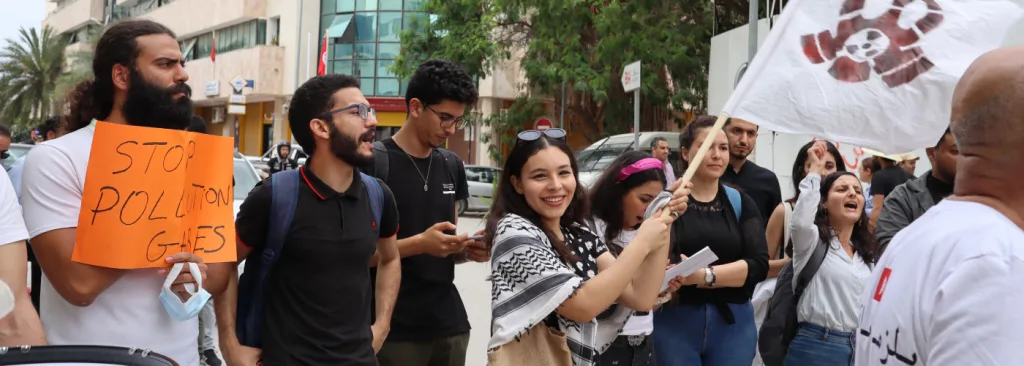Hivos participated in this year’s UN Climate Summit with a small but focused delegation. What lessons can we draw from COP29? And how can we turn them into strategic advocacy to influence COP30 outcomes? Let’s hear from this year’s delegates.
Climate finance failure at COP29
Hivos’ Collins Otieno was part of our delegation in Baku and supported Kenya’s negotiation on climate finance. This year, the New Collective Quantified Goal on Climate Finance (NCQG) overshadowed everything, according to Collins. “The negotiations took till the very last minute, and the outcome is not what we desired. The Africa Group of Negotiators argued for a goal of USD 1.3 trillion annually in climate finance based on the needs of developing countries at the frontline of climate crisis. Though the decision text acknowledges the need for these amounts, it doesn’t come close to the figures wanted by the negotiators.”
Instead, the final decision was that by 2035 developed countries will “take lead” in contributing USD 300 billion in climate finance annually. Next to that there is a call for governments and companies to top this up with loans and grants to at least USD 1.3 trillion. “There is a huge lack of commitment around the agreements this year,” says Collins. “Though the decision recalls article 9 of the Paris Agreement, it’s unclear what ‘taking lead’ means. In fact, the language on finance commitment for climate action has continually been diluted since COP16 in Cancun.”
Collins foresees that COP30 will demonstrate the insufficiency of USD 300 billion in climate finance, when the National Determined Contributions (NDCs) will take center stage. “The submission of NDCs in February will show that countries likely require even more than USD 1.3 trillion, if the NDCs are ambitious and based on the needs of local and Indigenous communities in the global south. A good example is a country like Ethiopia that currently needs nearly USD 316 billion to implement its NDC, almost the equivalent to the annual NCQG as set in Baku.”
COP29, a mockery of climate justice
Hivos delegate Dinah Fuentesfina explains that COP29 was marked by intense clashes and growing frustrations, in both the negotiation halls and the designated action spaces. “The mood was charged as developing nations expressed anger over the inadequacy of the USD 300 billion climate finance goal, including a massive sit-in outside the conference venue, chanting ‘justice for the Global South’ and holding banners that read ‘$300 billion is a death sentence’.”
Dinah underscores the urgent need for systemic reforms to deliver equitable and just climate solutions. “With wealthier nations dictating terms, COP29 once again demonstrated the urgent need for transformative change and genuine solidarity to address the climate crisis. The climate finance target is a mockery of climate justice because it fails to secure predictable, additional, and non-debt-creating climate finance, and offers no concrete guarantees for loss and damage funding. Without robust financial support, many developing nations will struggle to adapt to climate impacts or recover from disasters – let alone implement just transitions. This hollow pledge reinforces the injustice of a system that burdens those least responsible for the crisis with its heaviest costs, leaving marginalized communities and vulnerable nations to bear the brunt of both climate change and inequitable climate action.”
Our hopes and plans for COP30
Believing that our greatest impact lies where we are strongest, we’re looking ahead to COP30 in Belém next year and are putting enormous energy into early preparations for it. Hosted by Brazil, a country deeply rooted in the climate justice movement, Hivos sees COP30 as a pivotal opportunity to amplify the courageous voices we support.
COP29 negotiations can be considered a failure.
Micaela Valentim from Hivos Brazil has big expectations for next year’s summit. “For the first time in three years, the COP will take place in a country with a democratic government. By hosting the G20 meeting earlier this year, Brazil has positioned itself as an important mediator in global multilateral negotiations. We anticipate Belém will have the greatest participation from civil society, Indigenous groups, and local communities of any COP so far. It remains to be seen whether the massive presence of these key actors will directly influence the negotiations and whether, in Brazil, the UNFCCC will manage to restore people’s trust in its multilateral spaces.”
Micaela is hopeful because “the Indigenous movement in Brazil inspires other communities globally,” but there is also more pressure on COP30. “COP29 negotiations can be considered a failure. The final climate finance goal agreed fell far short of the minimum expectations, and key civil society agendas – such as gender, human rights, and the just energy transition – made no tangible progress. This puts COP30 under much greater pressure to deliver.”
One of Hivos’ plans for next year is for young women from 25 different countries in the Global South involved in our Global Girls Creating Change project to present their agenda during COP30. The agenda will contain proposals to challenge the climate crisis in their territories and globally. This will be an important collective advocacy effort representing the diverse realities and experiences of women and girls in climate action. We have good reason to believe that COP30’s negotiators will take it seriously.

